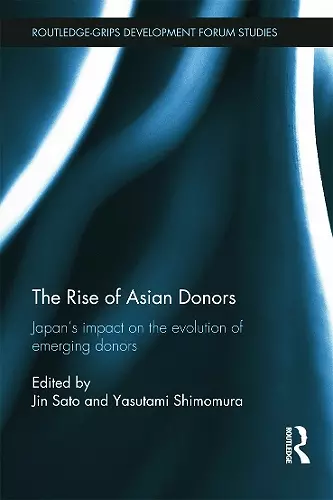The Rise of Asian Donors
Japan's impact on the evolution of emerging donors
Yasutami Shimomura editor Jin Sato editor
Format:Paperback
Publisher:Taylor & Francis Ltd
Published:27th Feb '14
Currently unavailable, and unfortunately no date known when it will be back
This paperback is available in another edition too:
- Hardback£155.00(9780415524391)

Why do poor countries give aid to others? This book critically examines how aspirations for providing aid have coexisted with experiences of receiving aid and have transformed the practice of giving aid, with particular reference to the experiences of Japan and China. It highlights the historical sources that explain the pattern and strength of foreign aid that these new donors provide.
The book has systematically examined the situation unique to middle income countries that are receiving and giving aid simultaneously. It sheds light on the endogenous elements embedded in the socio-economic conditions of emerging donors, as well as their learning process as aid recipients. This book examines not only the perspectives of recipients, but also those of donors: Japan in the case of China, and the USA and the World Bank in the case of Japan. By bringing in the donor’s perspective, we come to a holistic understanding of foreign aid as a product of interaction between the various agents involved. The book provides not only an in-depth case study of Japan from a historical perspective, but also stretches its scope to cover contemporary debates on "emerging donors," including China, India and Korea who have received substantial amount of aid from Japan in the past. This book connects the often separated discussion of Japanese aid and the way it developed in relation to outside forces.
In short, this book represents the first attempt to empirically examine the "life of a donor" with a clear focus on the origins, struggles, and futures of non-western donors and their impact on established aid regime.
ISBN: 9780415705813
Dimensions: unknown
Weight: 294g
200 pages